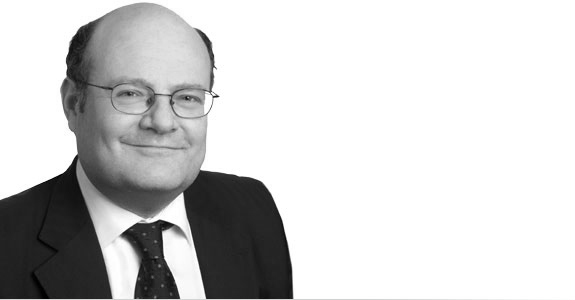Briefing
Sanctions update - Libya
The violent protests and reprisals in Libya continue to occupy the front pages, with daily reports of battles between those loyal to Gaddafi (written as Qadhafi in official documents) and rebels for control of key cities and resources in Libya, including ports, roads and refineries. With a mounting humanitarian crisis, and reports of airstrikes and other attacks on civilians, a raft of sanctions were swiftly promulgated by the UN, US, EU and a number of other countries.
This briefing summarises the present sanctions imposed by the UN Security Council, the US President and the EU Council, first by identifying the common ground in all three regimes, and then by discussing the key differences.
UN Resolutions are not directly effective on individuals and companies, so this briefing focuses on the implementing legislation in the UK. This puts into effect the asset-freezing provisions of the UN sanctions but not the travel ban (which is a matter for Member States) or the arms embargo (which is the subject of the EU Regulation, which has direct effect on individuals and companies in every Member State, without the need for national legislation).
At present, the UK, US and EU sanctions are restricted in their application to their own territory or their own nationals outside their own territory. However, it should be noted that, in common with the existing EU sanctions against Iran, Côte d’Ivoire and other countries, the EU sanctions against Libya have a wide territorial reach, and extend not only to EU nationals and EU companies, but also to any legal person, entity or body in respect of any business done in whole or in part within the EU.
Similarities
The key similarity between the various sanctions regimes is, of course, that all of the sanctions impose an asset freeze on Muammar Qadhafi and his immediate family, comprising his daughter (Aisha Muammar Qadhafi) and three of his sons (Khamis Muammar Qadhafi, Mutassim Qadhafi and Saif al-Islam Qadhafi).
The UK and EU sanctions also include a fourth son (Hannibal Muammar Qadhafi), and there has been speculation in the press about his links with General National Maritime Transport, which has a fleet of 14 aframax tankers. We will refer to these six individuals as the Designated Persons.
As well as the freeze on the assets of the Designated Persons (and others), the UK, US and EU sanctions all impose broadly similar obligations not to make funds, other financial assets or economic resources available, directly or indirectly, to a Designated Person or to another person for the benefit of a Designated Person.
Key differences
The key differences between the regimes relate to the objects of the asset freeze, the extent of the asset freeze and the additional prohibitions.
Objects of the asset freeze
The various regimes extend the asset freeze in slightly different ways. The UK sanctions also apply to (i) individuals or entities acting on behalf of a Designated Person or at the direction of a Designated Person, and (ii) entities owned or controlled, directly or indirectly, by a Designated Person.
The US sanctions extend to the Government of Libya (including its agencies, instrumentalities and controlled entities) and the Central Bank of Libya.
In addition, the US Secretary Treasury is given power to designate, amongst others (i) senior officials of the Libyan government; (ii) Qadhafi’s other children; (iii) those involved in human rights abuses; (iv) those who have assisted or sponsored human rights abuses; (v) any individual or entity owned or controlled by a person whose assets are blocked; and (vi) spouses or dependents of a person whose assets are blocked.
The first round of EU sanctions go beyond the UN sanctions in two key respects. Firstly, a further 20 individuals (in the military/security services and/or closely associated with the regime, who are said to be directly or indirectly involved in or complicit in human rights abuses) are added to the list of Designated Persons. Secondly, the sanctions apply to assets which belong to or are owned, held or controlled by a Designated Person.
All of the sanctions are drafted in intentionally wide terms, and there will be considerable overlap between the various regimes in terms of the objects of the sanctions. However, the precise extent of the sanctions is not presently clear, not least because the net has been cast widely to include individuals or entities acting on behalf of a Designated Person or at the direction of a Designated Person, and entities owned or controlled, directly or indirectly, by a Designated Person (in the case of the UK and EU sanctions), and the Government of Libya, including its agencies, instrumentalities and controlled entities (in the case of the US sanctions).
Given the nature of the Libyan regime it should be borne in mind that a number of “commercial” enterprises in Libya are likely to be subject to extensive state control. By way of guidance, the Notice published by HM Treasury at the time the UK sanctions came into force provides as follows:
“5. The effect of the asset freeze is not limited to assets held in the name of a designated person. As stated in paragraph 4, it also extends to any funds, other financial assets or economic resources owned or controlled by them. The financial sector and other persons should bear in mind that Muammar Qadhafi and his family have considerable control over the Libyan state and its enterprises in deciding how to conduct proper due diligence over any transactions involving Libyan state assets.”
The effect of this “health warning” is that any business which trades to Libya or with Libyan individuals, companies or entities must obtain as much information as possible about the ownership and control of their counterparts in Libya. Any indication that there may be an element of state control must be carefully investigated and immediate legal advice taken to assess whether there is any risk of a breach of the applicable sanctions.
Given the significant risk that a Libyan entity might be state-controlled (and the risk that if they are state-controlled, then they could well be owned or controlled by Muammar Qadhafi or another Designated Person), all companies need to be very careful before they make any payment to any Libyan entity. In practical terms, this may mean that some companies choose not to trade with Libya at all. The effect of such a decision on existing contracts will need to be carefully considered.
HFW is liaising with HM Treasury’s Asset Freezing Unit to establish whether further clarification or information can be provided, and this briefing will be updated once any more guidance is available.
Status of Libyan Investment Authority
A further EU Regulation was published on 11 March 2011, and this adds the Libyan Investment Authority, the Central Bank of Libya, the Libyan Foreign Bank, as well as two other financial organisations and one connected individual to the list of Designated Persons.
It has been reported that assets held by the Libyan Investment Authority (whose global holdings are valued at GBP 60 billion to GBP 80 billion) have been frozen in the UK.
The extent of the asset freeze
There is no breach of the UK or EU asset freezing provisions where a frozen account is credited with a payment which is due under a contract, agreement or obligation that was concluded or arose before the account became a frozen account, and that payment is itself frozen. HM Treasury must, however, be informed of the payment. By contrast, the prohibitions in the US sanctions expressly apply notwithstanding any contract entered into or any licence or permit granted prior to the effective date of the sanctions.
Authorisation may be obtained from HM Treasury for payments in very limited circumstances (basic expenses - eg food; payment of professional expenses; payment of bank fees; extraordinary expenses). Likewise, authorisation may be obtained under the EU sanctions for the release of frozen funds or economic resources (or the making available of funds or economic resources) in very limited circumstances (basic expenses - eg food; payment of professional expenses; payment of bank fees; extraordinary expenses). At present there appears to be no scope for authorisation under the US sanctions.
Both the UK and EU sanctions include a defence (where funds are made available, directly or indirectly, to or for the benefit of the Designated Persons) where there is no knowledge, or reasonable cause to suspect that a party’s actions would infringe the relevant prohibition. There is no equivalent in the US sanctions.
Additional prohibitions in the UN Resolution, EU Regulation and EU Decision
As mentioned above, the UN sanctions also comprise an arms embargo and a travel ban, in addition to the asset freezing provisions. The arms embargo relates to sales and also shipments of arms, weapons and ammunition, as well as technical assistance, training and financial or other assistance. The travel ban applies to 16 individuals, including the individuals whose assets are frozen.
The EU Regulation imposes an arms embargo on equipment which might be used for internal repression (as identified in the Regulation), as well as ancillary prohibitions (eg relating to technical assistance, financing and brokering) in respect of that equipment, as well as goods and technology on the Common Military List.
At the same time as the EU Regulation was published, the EU Council (which was responsible for the Regulation), also published an EU Decision. This does not have direct effect in Member States, and would need to be implemented by domestic legislation. The Decision provides for a wider arms embargo (it applies to arms and related material of all types), as well as a visa ban on 26 persons, including the Designated Persons, members of Qadhafi’s family closely associated with the regime and other persons responsible for the violent crackdown on the civilian population since 15 February 2011.
HFW will continue to monitor the situation in Libya and other sanctioned countries and will provide updates as events unfold.
For more information, please contact Anthony Woolich, Partner, on +44 (0)20 7264 8033 or anthony.woolich@hfw.com, or Daniel Martin, Associate, on +44 (0)20 7264 8189 or daniel.martin@hfw.com, or your usual contact at HFW.




